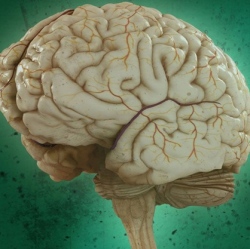
Surprisingly little is known about schizophrenia. It was only recognized as a medical condition in the past few decades, and its exact causes remain unclear. Since there is no objective test for schizophrenia, its diagnosis is based on an assortment of reported symptoms.
The standard treatment, antipsychotic medication, works less than half the time and becomes increasingly ineffective over time.
"We discovered a new pathway that plays a part in schizophrenia," said Prof. Gozes. "By identifying and targeting the proteins known to be involved in the pathway, we may be able to diagnose and treat the disease in new and more effective ways."
Autophagy is like the cell’s housekeeping service, cleaning up unnecessary and dysfunctional cellular components. The process — in which a membrane engulfs and consumes the clutter — is essential to maintaining cellular health. But when autophagy is blocked, it can lead to cell death. Several studies have tentatively linked blocked autophagy to the death of brain cells seen in Alzheimer’s disease.
Brain-cell death also occurs in schizophrenics, so Prof. Gozes and her colleagues set out to see if blocked autophagy could be involved in the progression of that condition as well. They found RNA evidence of decreased levels of the protein beclin 1 in the hippocampus of schizophrenia patients, a brain region central to learning and memory. Beclin 1 is central to initiating autophagy — its deficit suggests that the process is indeed blocked in schizophrenia patients. Developing drugs to boost beclin 1 levels and restart autophagy could offer a new way to treat schizophrenia, the researchers say.
